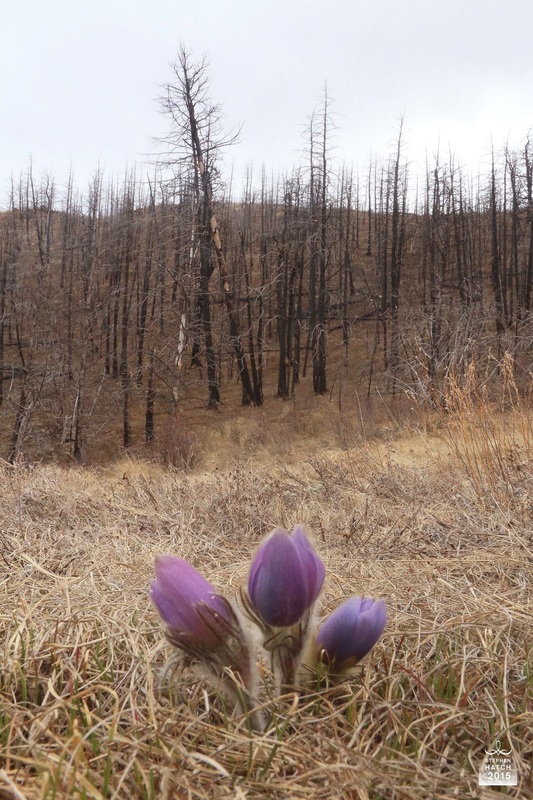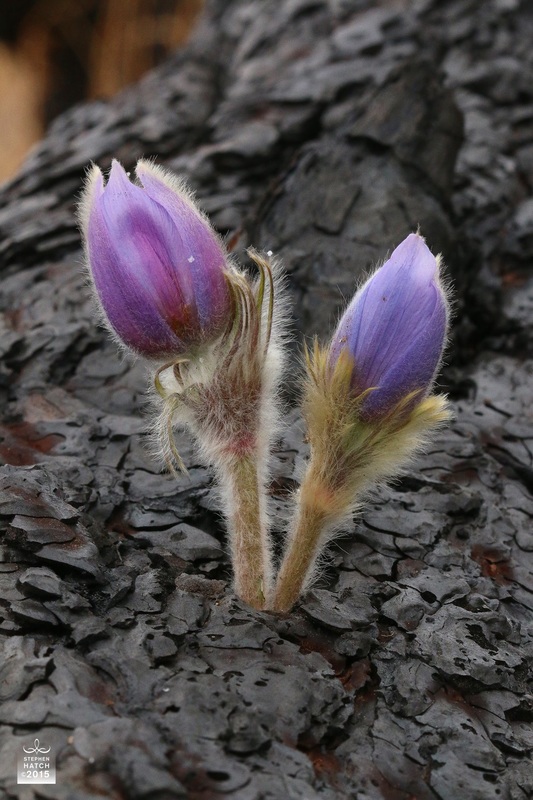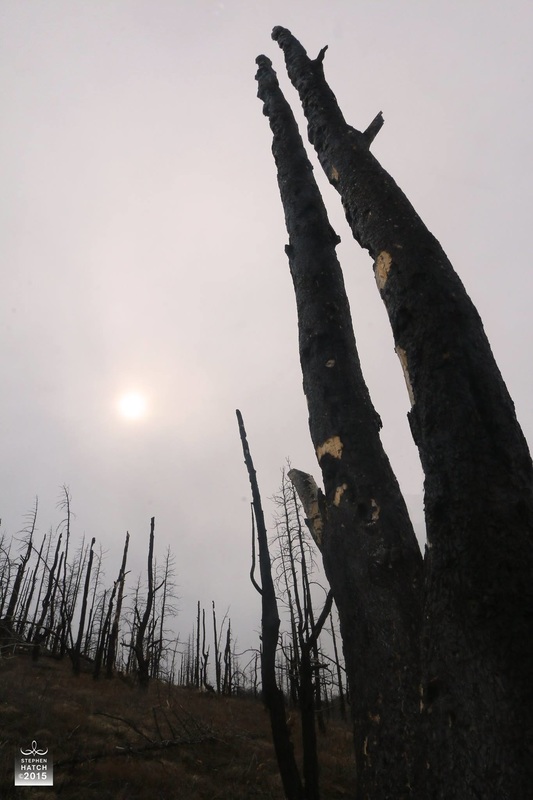|
One of the most important tasks of the spiritual life, I believe, is the capacity to look deeper into challenging situations in order to find the Sacred Reality that is hiding there. For me, exploring our local forest fire burns - especially those occurring in 2012 in the High Park and Hewlett Fires that consumed 95,000 acres - is a supremely rewarding experience. Especially this time of year when Pasqueflowers bloom en masse next to charred Ponderosa Pines and Doug-fir trees. As a student of psychology, I'm well aware of the fact that one of the major differences in perspective between personality types is highlighted by the Sensing-Intuitive variable in the Myers-Briggs Personality Indicator (MBPI). Those for whom "Sensing" predominates tend to look at facts the way they appear on the surface, while those for whom "Intuitive" is the chief quality look UNDER the surface in order to find the pattern hidden there. I see this difference at the university where I work, and especially with the Christian Mysticism course I teach. Naropa is a Buddhist (or rather, "Buddhist-inspired") university, and many of the students embrace Eastern Religions because of the oppressive elements they've experienced within Christianity. They are well aware that in modern fundamentalist America and throughout history, exoteric Christianity has led to much oppression, bigotry and bloodshed. Just ask any Native American, and you'll understand this perspective. However, if one looks under the surface at the inner or esoteric tradition of Christianity, one finds a mystical perspective that is every bit as liberating at those embedded within Eastern traditions. Even in the mystical tradition, of course, some of the oppressive exoteric elements still mix, so the sifting process must of necessity be an ongoing process. Being an Intuitive on the MBPI, I enjoy this kind of detective work, ferreting out the gems in the Christian tradition that are truly liberating. However, I've noticed that some of the students tend to remain on the Sensing level, unable to get past the oppressive externals of the tradition, especially as expressed in its modern fundamentalist version. On the other hand, these same students tend to idealize Eastern Religions which - to my mind - contain just as many oppressive elements as the Western ones do. Here, I find my own Intuitive bent looking under the surface, for example, of American Buddhism or Hinduism (which tend to emphasize the BEST elements of the tradition and ignore the worst) in order to find the fundamentalist elements that are present there as well. After all, fundamentalism is a HUMAN trait that has a tendency to infect every endeavor in which we human beings engage, including the realm of religion. With respect to Eastern Religions, for example, some practitioners claim to have attained the Absolute and left the realm of the Relative completely behind. As a consequence, they often ignore the fact that they are looking at Truth through a cultural, gendered, ethnic, personal and religious lens that is every bit as biased (and unconscious) as that of a Christian fundamentalist. And this, I believe, is a dangerous stance to maintain, especially in a post-modern world that is in the process of waking up to the diversity of different stances and perspectives - many of which have been historically suppressed - that make up life on this amazing planet. Thus, I believe an Intuitive capacity is important for ALL of us to practice - regardless of our personality type - as a means of discovering both the beauty hidden within desolation AND the shadow side lurking inside the things we consider beautiful. And this, I'm convinced, is especially true when our own tradition - whether Eastern, Western, or neither - is the subject of study and discussion :) Photo: Pasqueflowers and charred trees, Hewlett Burn, Poudre Canyon, CO, March 16, 2016 For Spiritual Direction or Workshops, please visit: http://www.resourcesforspiritualgrowth.com/
0 Comments
Leave a Reply. |
AuthorStephen Hatch, M.A. is a spiritual teacher and photographer from Fort Collins, Colorado. His approach is contemplative, inter-spiritual, and Earth-based. Archives
June 2016
Categories |



 RSS Feed
RSS Feed
